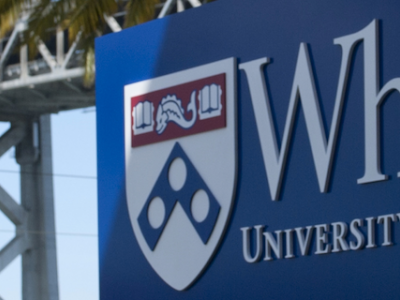I am at a Chicago Booth Executive MBA information day tomorrow, at its London campus. Let me know if you have any questions you'd like me to ask.
Chicago Booth Executive MBA - Any questions?
Posted Mar 02, 2012 14:43
Posted Mar 02, 2012 18:48
Thanks, Duncan for the offer. I'm curious about a couple of things:
What does a student need to qualify for a GMAT waiver?
What percentage of students are funded by their current employers?
Are on-campus recruitment events or other career services provided?
What does a student need to qualify for a GMAT waiver?
What percentage of students are funded by their current employers?
Are on-campus recruitment events or other career services provided?
Posted Mar 04, 2012 00:36
Rick, I was really impressed by the Chicago EMBA, much more than I expected. In a nutshell, I think it's the sweet-spot programme for top-flight executives who
- Want a more extensive MBA programme than most EMBAs
- Live too far from a top weekend-based programme, and need a block week format
- Want to change function, industry, country or all three
- Want to waive the GMAT.
My key take-aways:
- A slight majority of the candidates qualify for the GMAT waiver. The waiver is aimed for people who have proven quantitative skills, evidenced by recent academic results or management experience.
- The key differentiator for the EMBA is the strong careers service. I can't think of a programme will a smilar offer: Career development sessions in every block week; Industry happy hours each week to allow networking with alumni and recruiters; Regular Executive On Call teleconferences to listen to, and question, industry experts; Five employer development specialists (three in Chicago, one in London and one in Singapore) who actively market students and alumni into companies; a sharp careers advisor in London, who works 75% of the time with London students, and 25% with other Booth people.
- 16 courses: 14 core and just two electives.
- Average age of 35. 84% Male (!). Largest nationalities in the class are Russian and French. Half have advanced degrees already.
- 25% of students are fully funded; 35% partly funded; 40% self-funded (considering that almost all the applicants I spoke to were planning to use the MBA to change company, I wonder if a big part of the 25% are people signing off their own fees).
- Students and applicants were of a very high quality.
Only one thing irked me: the 'concentration in finance' is misnamed. At most MBAs, a concentration is the equivalent of a semester of full-time study (around a quarter of the total). At Chicago, the concentration is an optional one-week course, costing an extra 6K on top of the fees. I think it would be reasonable at any MBA to assume that a concentration is three or four electives courses, not just one.
- Want a more extensive MBA programme than most EMBAs
- Live too far from a top weekend-based programme, and need a block week format
- Want to change function, industry, country or all three
- Want to waive the GMAT.
My key take-aways:
- A slight majority of the candidates qualify for the GMAT waiver. The waiver is aimed for people who have proven quantitative skills, evidenced by recent academic results or management experience.
- The key differentiator for the EMBA is the strong careers service. I can't think of a programme will a smilar offer: Career development sessions in every block week; Industry happy hours each week to allow networking with alumni and recruiters; Regular Executive On Call teleconferences to listen to, and question, industry experts; Five employer development specialists (three in Chicago, one in London and one in Singapore) who actively market students and alumni into companies; a sharp careers advisor in London, who works 75% of the time with London students, and 25% with other Booth people.
- 16 courses: 14 core and just two electives.
- Average age of 35. 84% Male (!). Largest nationalities in the class are Russian and French. Half have advanced degrees already.
- 25% of students are fully funded; 35% partly funded; 40% self-funded (considering that almost all the applicants I spoke to were planning to use the MBA to change company, I wonder if a big part of the 25% are people signing off their own fees).
- Students and applicants were of a very high quality.
Only one thing irked me: the 'concentration in finance' is misnamed. At most MBAs, a concentration is the equivalent of a semester of full-time study (around a quarter of the total). At Chicago, the concentration is an optional one-week course, costing an extra 6K on top of the fees. I think it would be reasonable at any MBA to assume that a concentration is three or four electives courses, not just one.
Posted Mar 05, 2012 09:59
On more comment: the range of career services is really wide:
- 1-1 assessments
- review sessions to put psychometric assesments to work
- Tuesday career sessions (relationship building, networking, role research, resume writing, telling your story, interviewing, using LinkedIn, working with executive recruiters, positioning for non-executive directorships, industry insight teleconferences with executives, role identification and company research)
- Employer development (visiting employers in key centers to actively market students and alumni)
- Executive in residence (on site executive to conduct small group mentoring and 121 sessions, for example on building a career and identifying key success factors).
- 1-1 assessments
- review sessions to put psychometric assesments to work
- Tuesday career sessions (relationship building, networking, role research, resume writing, telling your story, interviewing, using LinkedIn, working with executive recruiters, positioning for non-executive directorships, industry insight teleconferences with executives, role identification and company research)
- Employer development (visiting employers in key centers to actively market students and alumni)
- Executive in residence (on site executive to conduct small group mentoring and 121 sessions, for example on building a career and identifying key success factors).
Posted Mar 05, 2012 13:43
Duncan,
Thanks for the very useful info. After your recent visit to booth, how is your earlier view holds now? How does Booth compare with LBS EMBA?
Imperial and Cambridge are great for tech at the undergraduate level, but of course far fewer CIOs than CFOs or CEOs will have MBAs. To get traction with MBA-level recruiters, you need a school with great careers services that actively manage relationships with MBA hirers. LBS is, by far, the king of that in the UK. You can use the FT full time ranking to see how effective the schools are at placement: LBS, Cranfield and Imperial are very successful; Judge is okay. The other schools are not so strong.
Booth, of course, is a tiny part-time school in the UK, and one which has not been in the UK for long. Without any full-time course it cannot have the pull it needs to maintain strong relationships with recruiters. I am sure that graduates in the UK cannot have the same outcomes as those in the US.
http://www.find-mba.com/board/22094
Thanks for the very useful info. After your recent visit to booth, how is your earlier view holds now? How does Booth compare with LBS EMBA?
<blockquote>
Imperial and Cambridge are great for tech at the undergraduate level, but of course far fewer CIOs than CFOs or CEOs will have MBAs. To get traction with MBA-level recruiters, you need a school with great careers services that actively manage relationships with MBA hirers. LBS is, by far, the king of that in the UK. You can use the FT full time ranking to see how effective the schools are at placement: LBS, Cranfield and Imperial are very successful; Judge is okay. The other schools are not so strong.
Booth, of course, is a tiny part-time school in the UK, and one which has not been in the UK for long. Without any full-time course it cannot have the pull it needs to maintain strong relationships with recruiters. I am sure that graduates in the UK cannot have the same outcomes as those in the US.
http://www.find-mba.com/board/22094
</blockquote>
Posted Mar 05, 2012 14:01
Well, I think my early assessment still stands. It's a very strong programme but the fact that it's an MBA without a co-located school, university and alumni network is a big restriction.
The programmes are very different. The Chicago EMBA have just two electives. The LBS MBA, like the part-time MBA in Chicago, has a full range of electives. As in the full-time MBA at LBS, the second year is made up of electives.
Chicago does have an alumni network in Europe but, from what the said, the most active alumni clubs are in Belgium, France and Russia. It's great to have a careers advisor and employee liaison person in London, but they support both Booth students in London and those at other campuses who are targetting Europe. Their career services are very strong, not worse than LBS or Insead support for EMBAs. But I would only recommending it over LBS for candidates in the sweet-spot I mentioned above. Since Chicago costs 35% more than LBS, it's also quite different.
The programmes are very different. The Chicago EMBA have just two electives. The LBS MBA, like the part-time MBA in Chicago, has a full range of electives. As in the full-time MBA at LBS, the second year is made up of electives.
Chicago does have an alumni network in Europe but, from what the said, the most active alumni clubs are in Belgium, France and Russia. It's great to have a careers advisor and employee liaison person in London, but they support both Booth students in London and those at other campuses who are targetting Europe. Their career services are very strong, not worse than LBS or Insead support for EMBAs. But I would only recommending it over LBS for candidates in the sweet-spot I mentioned above. Since Chicago costs 35% more than LBS, it's also quite different.
Posted Mar 05, 2012 21:53
Thanks, Duncan, for all this information. Could you elaborate a bit on what you mean about this program being more extensive than others?
And how would you compare it against Wharton's EMBA?
Rick, I was really impressed by the Chicago EMBA, much more than I expected. In a nutshell, I think it's the sweet-spot programme for top-flight executives who
- Want a more extensive MBA programme than most EMBAs
And how would you compare it against Wharton's EMBA?
<blockquote>Rick, I was really impressed by the Chicago EMBA, much more than I expected. In a nutshell, I think it's the sweet-spot programme for top-flight executives who
- Want a more extensive MBA programme than most EMBAs</blockquote>
Posted Mar 05, 2012 23:43
Hi Rick, by extensive I mean the opposite of intensive. It's 16 weeks on campus, giving overall number of contact hours at the top end of the EMBA scale, like Wharton and London. That compared with 12 weeks at Insead, and around nine weeks at Cambridge.
Wharton and London, unlike the others, offer a very wide range of electives, around a third of the total.
Wharton and London, unlike the others, offer a very wide range of electives, around a third of the total.
Posted Mar 07, 2012 17:42
Thanks for your thoughts, Duncan. My plan is to apply to both the Wharton and Booth programs, but if I end up not doing well on the GMAT, try to get a waiver from Booth. I've talked to admissions people at Wharton who said that they don't offer waivers under any circumstances.
Related Business Schools
Other Related Content
LinkedIn Launches MBA Rankings of US Business Schools
News Jan 11, 2024
MBA School Choice: Wharton Vs. Booth
Article Aug 15, 2018
Both business schools are highly ranked and feature strong placements in the financial services sector. But the culture and career destinations of Wharton and Booth students vary, sometimes widely
Hot Discussions
-
Online MBA
Nov 12, 2024 3,223 26 -
UPF-BSM vs EAE Business School vs UAB, seeking insights over potential business schools in Barcelona, Spain.
Nov 07, 2024 165 12 -
Kozminski vs SGH
Oct 26, 2024 142 10 -
Looking to pivoting into management role in California
Nov 19 03:14 PM 72 5 -
"Late Bloomer" with average academics/experience, but 720 GMAT and Polyglot
Nov 07, 2024 101 4 -
Gut check
Nov 11, 2024 103 4 -
Are executive short courses that bad? Any alternatives if employer pays?
Nov 13, 2024 94 4 -
Time management when pursuing an MBA while working
Oct 31, 2024 76 4
-(1)-94485.jpeg)

-94c63.png)


